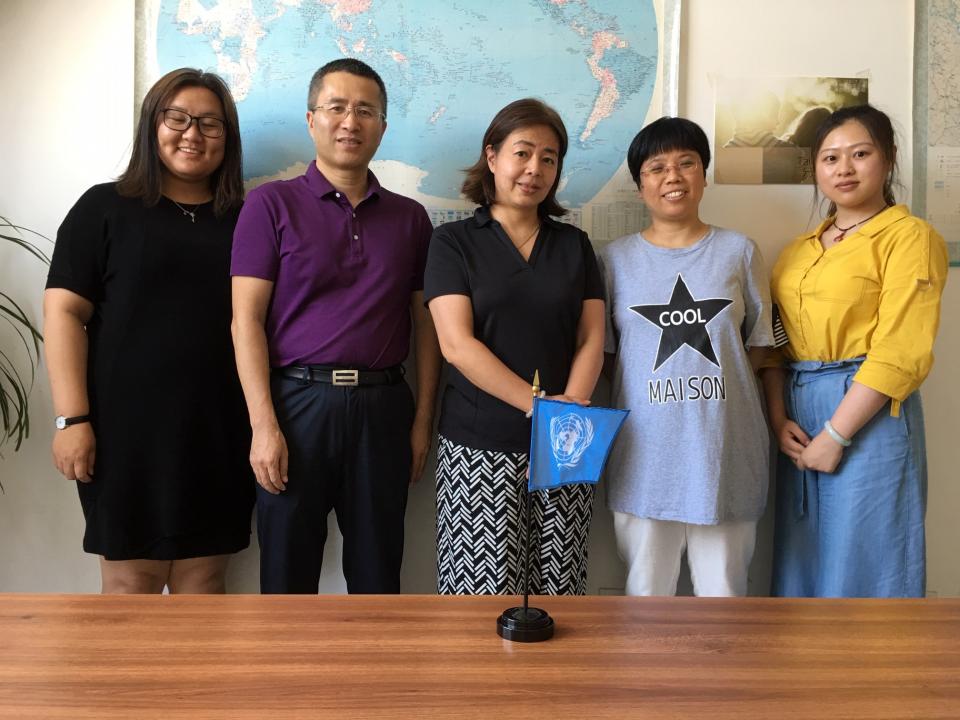- Home
- Three projects in Asia advance the rights of vulnerable youth
Three projects in Asia advance the rights of vulnerable youth



An UNDEF project in China works to ensure the rights of children in China are adequately protected and that all children in need of legal aid are able to procure it. Implemented by the Beijing Children’s Legal Aid and Research Center, the project provides legal counselling, handbooks on child rights protection, and education on rights. The project also helps establish child-focused civil society organizations in China, publishes reports on child rights protection, and conducts a media campaign advocating for effective and complete protection of children’s rights. Although China’s legal system provides robust protections for children in practice, many of these policies are not implemented effectively and there is a dearth of legal assistance available for many children in need. Mikiko Sawanishi, Deputy Head of UNDEF, visited the project in June 2019.
In Laos, an UNDEF project strives to empower youth, particularly young women, ethnic minorities and other marginalized groups, to take a more active role in their communities and in the greater political sphere. The project, implemented by the local Gender and Development Association, involves promoting awareness of the right to education and other social services, as well as training courses in leadership, gender equality, and community development. Youth participation in political life is crucial for building an equitable society and for formulating policy choices that will have a positive impact on that society’s future. Young women play a key role in this process. Yet in Laos they have limited opportunities for education and political participation. Mikiko Sawanishi visited the project in June 2019.
In Vietnam, an UNDEF initiative works to prevent violence against women and girls with disabilities and promote gender equality in Vietnam more generally. Implemented by the local Action to the Community Development Center (ACDC), the project takes a multi-faceted approach, promoting awareness of the rights of women and girls with disabilities, while also providing skills trainings for preventing violence. The project is also building a support system for those affected by gender-based violence, as well as strengthening the legal framework for protection and promoting policies aimed at preventing and supporting the victims of gender-based violence. In recent years, Vietnam has taken important steps towards promoting gender equality and the political and socio-economic empowerment of women. However, gender-based violence remains prevalent, especially against women and girls with disabilities. On a project visit, Mikiko Sawanishi met and participated in an event led by ACDC, a policy dialogue on preventing sexual violence against women and girls with disabilities.


